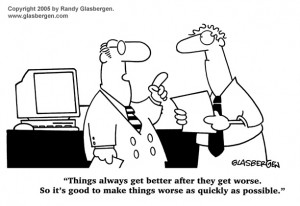There is a lot written about how networking online can propel your job search. Claims are made that social media can deliver a better job much faster than other job search techniques. Despite this, many job seekers are not using social media and online networking sites.
In a survey of job seekers conducted in Australia, less of than 20% of the job seekers thought social networking sites help a job search. Although this study was conducted in Australia, I expect the results would be very similar around the world.
There are a number of reasons job seekers don’t see value in social networking. The two biggest are related to not understanding how to use this tool. First, even though the growth of social media sites has been tremendous, everyone isn’t on Facebook or Twitter. If you haven’t used a tool, it would be difficult to see the value. Second, many job seekers adopt the wrong approach to social media, leading to poor results.
The solution is simple, give social media a try and adopt a strategy that will work. Ok, that’s easy to say, but how do you do it?
Imagine social media sites as being a huge sidewalk in the business district of your city. There are an overwhelming number of people walking by. Some can help you with your job search, most can’t. There are two approaches people new to social media try. They either hold a sign and hope people will read it, even though there are millions of other people standing there with signs too, or they randomly walk up to people and ask for a job. How effective would your job search be if you went to busy street corner and tried this?
The key to social media is building relationships. The 80% of job seekers who think social media will not help are right if you expect to be able to go to a networking site, ask people you don't know for a job online and get results. Use social media to identify people you know that can help you. Connect with friends, family, former coworkers and others you know online. As you identify opportunities that interest you, ask your network what they know about the company. It is likely someone you know will know someone that works for the company. That individual can give valuable insight into the hiring process and priorities of the company.
Gathering this research is the biggest benefit of social media. You can tailor your approach to the company to their goals and values, and improve your odds of getting hired.
